AITA for laughing in my mother's friends face when she told me to 'go to my room'?
She hadn’t spoken to her mother in years, each silence a shield forged from old wounds and broken trust. But today, necessity drew her back to the house she left behind—a place heavy with unresolved pain and the echoes of a fractured family. The weight of the past pressed down as she stepped inside, only to be met with another familiar scene of chaos and manipulation.
Her mother’s sudden emergency was just another thread in the tangled web of drama that had pushed her away for so long. When asked to watch her younger brothers—strangers to her, barred by years of neglect and resentment—she stood firm, guarding the fragile boundary she’d fought to create. Yet, even in her refusal, she found herself trapped, forced to wait in a house that felt less like home and more like a battleground of broken promises.

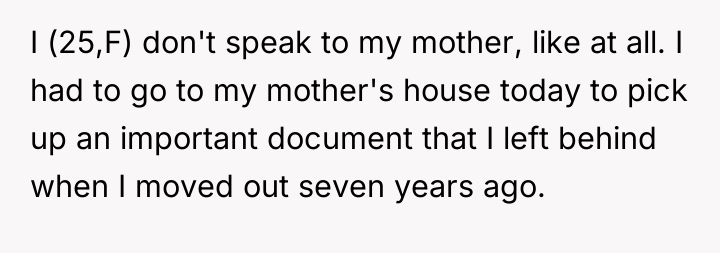
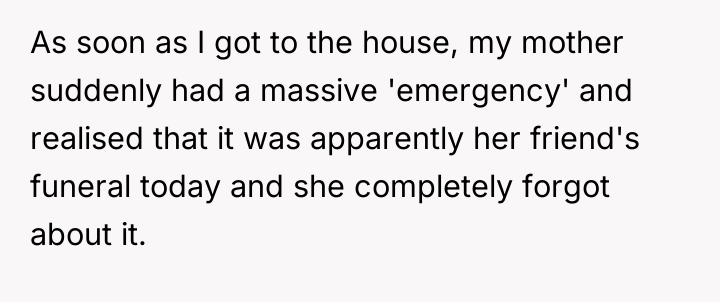

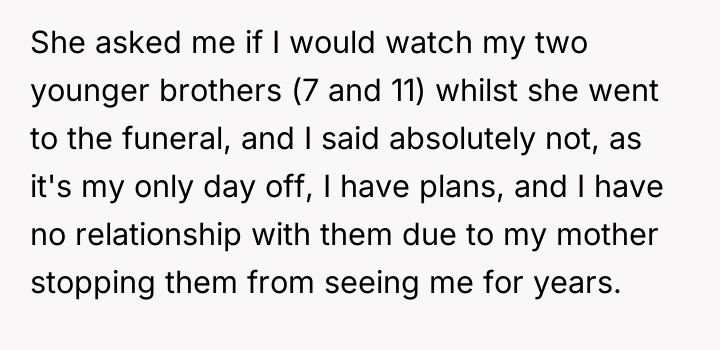
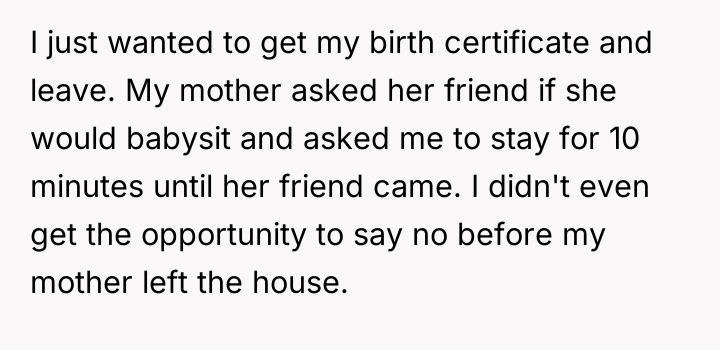
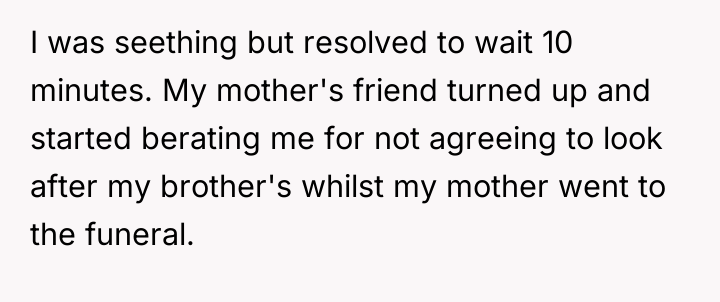
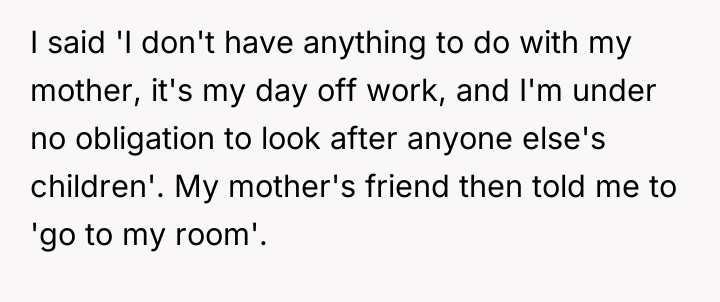
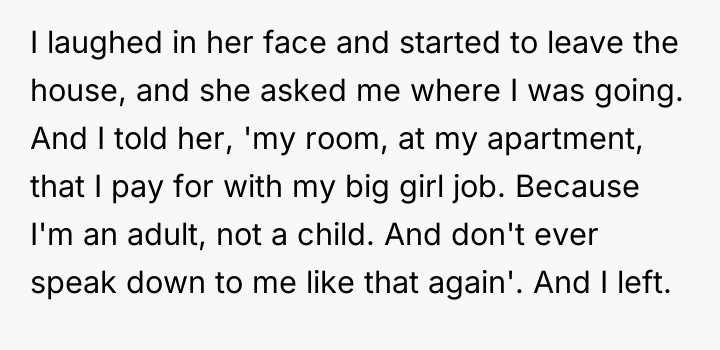
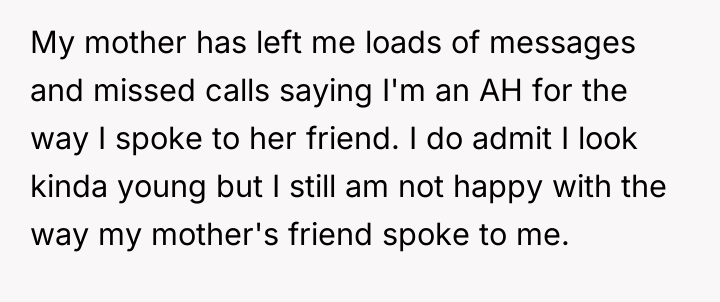
Subscribe to Our Newsletter
As renowned family therapist Dr. Terri Apter explains, 'We often mistake control for care, expecting those we love to prioritize our needs simply because we love them.' In this scenario, the mother exhibited a pattern of using emotional urgency (the 'emergency' funeral) to manipulate the OP into performing acts of care (babysitting) that go against the established, low-contact relationship. The OP's initial refusal was a clear boundary setting, but the mother's decision to leave the children anyway, even for a perceived '10 minutes,' demonstrated a profound disrespect for the OP's autonomy and stated limits.
The reaction from the mother's friend—berating the OP and then commanding them to 'go to my room'—was a significant overstep, invoking a parental dynamic that does not exist between them. The OP's response, while heated, was a forceful reclamation of their adult status and established boundaries against both condescension and implied obligation. While direct communication is usually preferable, when an individual is deliberately cornered and spoken down to in their own space (by proxy of the mother's actions), a sharp, definitive statement often serves as the only immediate mechanism to stop the unacceptable behavior.
The OP's actions to retrieve the document and enforce their boundaries were appropriate given the history and the immediate provocation. To handle similar situations more constructively, the OP should focus on pre-emptive boundary setting for necessary interactions, such as stating clearly beforehand: 'I will arrive at X time, retrieve Y document, and leave immediately. I am not available for any other tasks or discussions.' If the mother attempts to impose on the visit, the OP must be prepared to leave instantly without retrieving the item, prioritizing their peace over the document if necessary, to avoid being trapped again.
AFTER THIS STORY DROPPED, REDDIT WENT INTO MELTDOWN MODE – CHECK OUT WHAT PEOPLE SAID.:
This one sparked a storm. The comments range from brutally honest to surprisingly supportive — and everything in between.

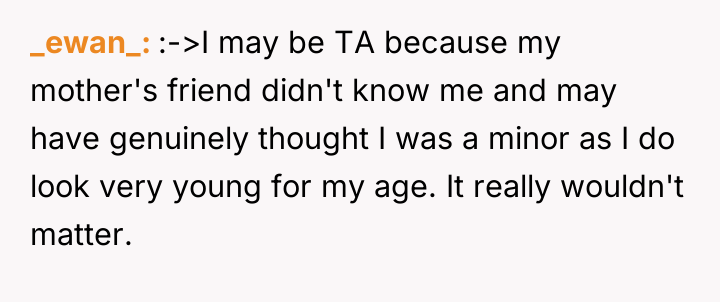

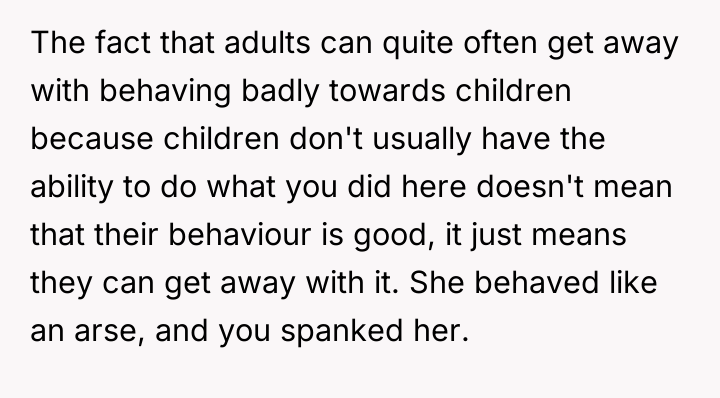
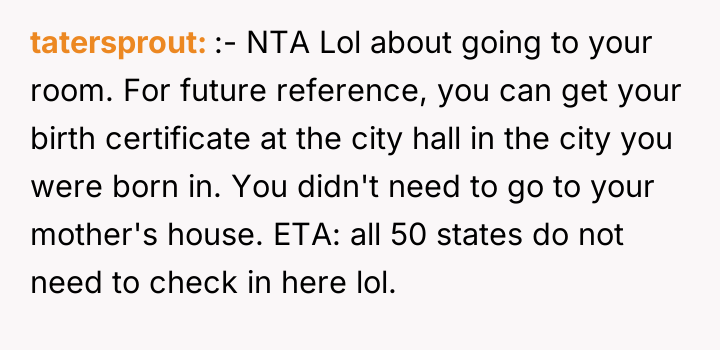
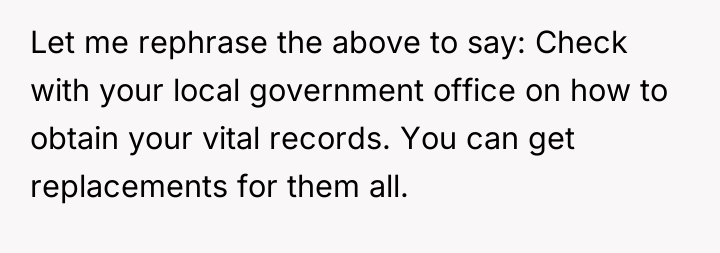
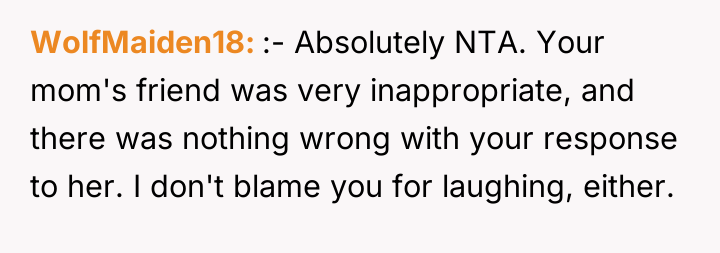

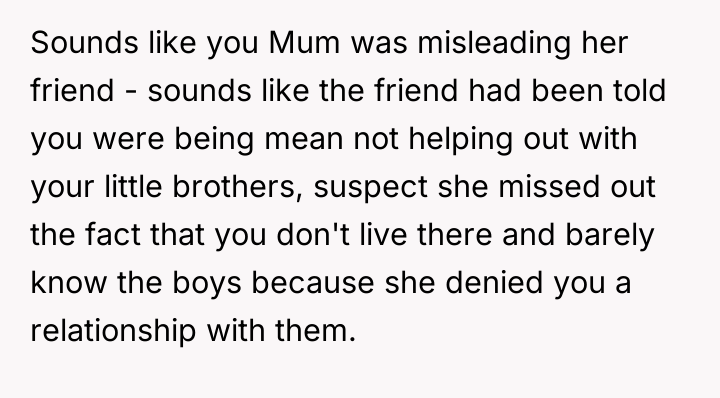
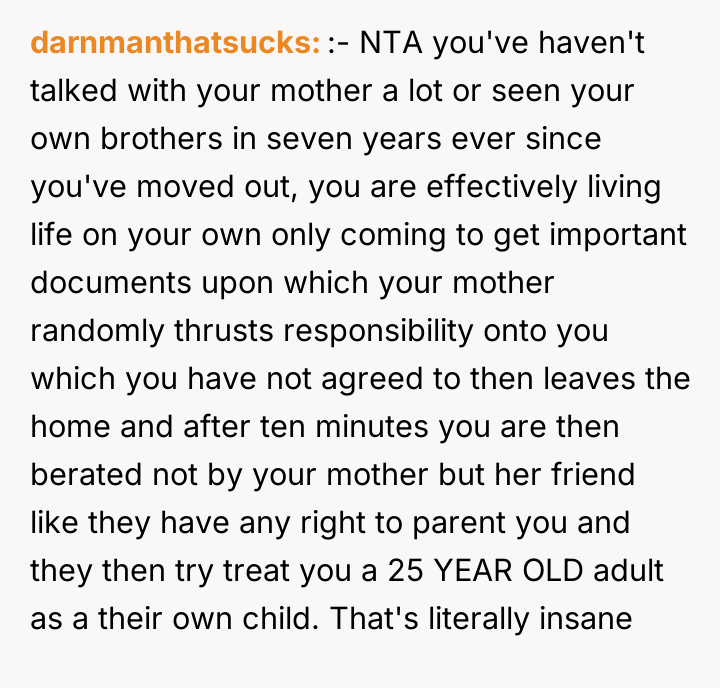
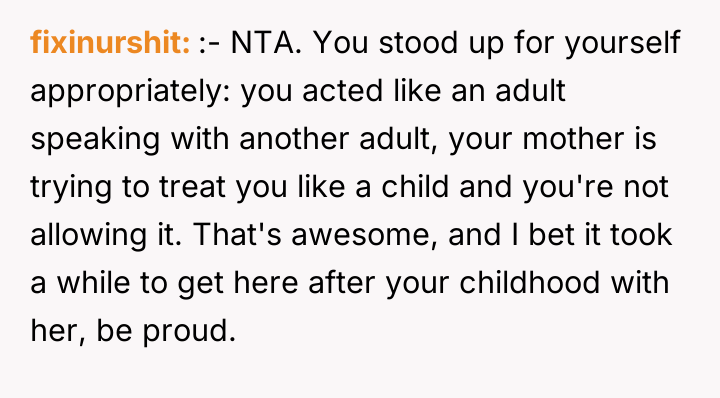
The original poster (OP) sought to complete a necessary, brief task—retrieving an important document from a parent with whom they maintain minimal contact. The central conflict arose when the mother used a sudden 'emergency' as leverage to impose significant, unwanted childcare responsibilities, which the OP rightfully refused. The situation escalated when the mother bypassed the OP's refusal, forcing a brief obligation, which then led to confrontation with the mother's friend.
Given the history of estrangement and the immediate violation of the OP's boundaries by both the mother and her friend, was the OP justified in their sharp verbal retort and immediate departure, or did the unexpected confrontation warrant a calmer response despite the circumstances?